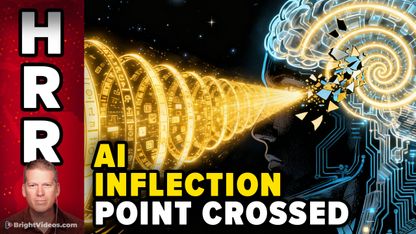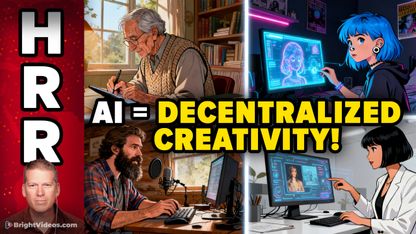
For decades now, it has been understood that adult humans do indeed experience neurogenesis, and that this process can be enhanced through diet and other means to prevent and possibly even reverse cognitive decline. Multiple studies have been undertaken to find ways to boost neurogenesis in patients who have had a stroke or who have Alzheimer’s disease or other degenerative illnesses. (Related: Memories "lost" to Alzheimer's can be retrieved; they're not lost after all, new science discovers.)
Now, a new study by researchers from the University of California, San Francisco (UCSF), published in the journal Nature, has taken the scientific world by storm, claiming that neurogenesis in the human hippocampus – the region responsible for learning and memory – declines steadily throughout childhood and disappears almost entirely in adulthood.
“We find that if neurogenesis occurs in the adult hippocampus in humans, it is an extremely rare phenomenon, raising questions about its contribution to brain repair or normal brain function,” said Arturo Alvarez-Buylla, Ph.D., a professor of neurological surgery at UCSF.
Interestingly, Professor Alvarez-Buylla is a world-renowned expert on brain development who played a key role in the discovery that other animals experience neurogenesis throughout their lives.
The research team from Professor Alvarez-Buylla’s lab reached their controversial conclusion about human neurogenesis after examining 37 postmortem brain samples and 22 surgically excised tissue samples from epilepsy patients, sent to them by clinical collaborators from around the world.
Sorrells and Paredes [the lead researchers] analyzed changes in the number of newborn neurons and neural stem cells present in these samples, from before birth to adulthood, using a variety of antibodies to identify cells of different types and states of maturity, including neural stem cells and progenitors, newborn and mature neurons, and non-neuronal glial cells. The researchers also examined the cells they labeled based on their shape and structure – including imaging with high-resolution electron microscopy for a subset of tissue samples – in order to confirm their identity as neurons, neuronal stem cells, or glial cells.
The research revealed intense neurogenesis before and just after birth, with an average of 1,618 young neurons per square millimeter of brain tissue in newborns. However, this number began to drop off dramatically during infancy and throughout childhood, with only 2.4 new cells per square millimeter visible in early adolescence. The researchers could find no evidence of any newborn neurons in any of the 17 adult postmortem samples or in the tissue samples of 12 adult epilepsy patients.
“In young children, we were able to see that substantial numbers of new neurons continue to be made and integrated into the dentate gyrus, but neurogenesis fades away completely by early adolescence,” noted Mercedes Paredes, an assistant professor of neurology at UCSF. “The fact that we could compare newborn brains, where new neurons were clearly present, to the adult, where we saw no evidence for young neurons, gave us added confidence that what we were seeing was correct.”
Alvarez-Buylla notes that this study raises more questions than it answers. For example, if humans do not experience neurogenesis during adulthood, how do we learn new things? And how can we help people with Alzheimer’s and other degenerative diseases if we cannot stimulate neurogenesis in their brains? And finally, even if neurogenesis does not take place naturally during human adulthood, is there any way in which we can induce it? (Related: Discover the latest in medical breakthroughs at Medicine.news.)
Sources for this article include:
Please contact us for more information.























